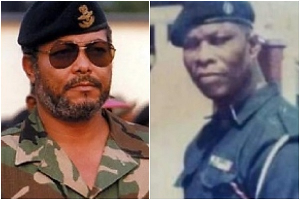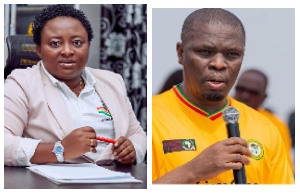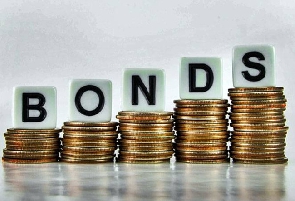THE SUPREME COURT VERDICT:
Voices that Scream for Palpable Justice
Daniel Korang
As I mull over the on-going 2012 Presidential Election Petition, I immediately fall into a state more akin to a deep trance. In that state, I look and, behold, I hear voices screaming like that of an assemblage of women in labour. Mothers are screaming, so are their children. I hear the voices of workers and the jobless alike. Men and women are screaming. School children are suffocating under the intense pressure of fear of imminent war. They wonder whether they will live after 29th August, 2013. The cry that most saddens me is that of the hospitalized. They ask, if all Ghanaians must run away for their lives, how can we also run for safety? I also hear this seemingly legitimate whimper from an unknown source which asks, even if we can run for our lives, to where can we go? Yes, every Ghanaian is screaming hard. What for? Plain justice! Under my breath, I ask, justice?
One common strand of unanimity in the voices is the call for palpable justice. Yes, justice indeed! However, as I draw nigh to the screamers, my ears begin to gather different viewpoints as to what palpable justice is. The screamers are one people with common national identity, destiny, hope and aspirations. Yet, the dichotomy in their views concerning justice seems irreconcilable. Yes, diametrically opposed indeed! Who will help out these desperate seekers of justice? And who even can? Whose explanation will be welcome by all or even the majority? The screamers, quite strangely, seem to be in decidedly entrenched positions as to what justice means to them. All the searchers of justice have devised their own yardsticks, standards and indices with which to measure the justness of the verdict of the Supreme Court.
With considerable strain, I also hear some voices making yet another important clarion call: a passionate appeal for national peace! I look and I behold a group of placard-bearing marchers along our principal streets chanting and displaying signs like “NO JUSTICE, NO PEACE”, “PEACE WITHOUT JUSTICE IS NO PEACE AT ALL”, “JUSTICE IS WHAT WE LOOK FOR”, “GHANA NEEDS JUSTICE”, “MY LORDS, WE NEED PEACE”, “PEACE, PEACE, BUT JUSTICE FIRST” and similar inscriptions. The inscription that strikes me in the bone is the one on a placard being wielded by a lofty and stout young man which reads, “WITHOUT JUSICE, WE SHALL DIVIDE GHANA LIKE AN EGG”. As I look on, I make one interesting observation. I realize that the placard-wielding crowd comprises followers of the petitioners and the respondents, and some members of the Ghanaian society who apparently appear neutral and non-partisan.
Then I begin to ask myself some questions like, “Palpable justice, by whose standard?”, “Peace, is Ghana at war?”, “why justice first before peace?”, “why divide Ghana if the verdict is ‘unjust’?” “By what barometer can we legitimately measure the justness of the verdict?” and suchlike questions. I stop the crowd and venture to explain the concept of justice to them. Immediately, I realise that my perspective of justice is worse than that which the marchers hold. I realise that I need someone else to explain ‘justice’ to me. I am equally confused. There and then I feel much obliged to join the desperate folk seeking justice.
I now prepare my own placard with the following inscription: “WHAT IS PALPABLE JUSTICE?” See, as my fellow Ghanaians desperately seek justice, I hopelessly seek what justice means. So we all march on. We still want to find out what justice means. Who will help explain justice to me? If I find an answer to my question, then what seems as a national conundrum shall cease. Whose explanation of justice will be most acceptable to Ghanaians, not least the followers of the petitioners and the respondents? How can we know that the yet-to-be-delivered verdict is just? How will the ‘winners’ describe the verdict? How much scorn will the ‘losers’ and their followers pour on the verdict and the court? What is justice? What is palpable justice?
As I persist in this all-important inquiry, I recall that I have a copy of the supreme law of the land- the 1992 Constitution of the Republic of Ghana. I pick it and begin to flip the pages to see if I could find the meaning of justice. In the silence of the moment, I see Chapter Eleven of the Constitution with the heading “The Judiciary” and immediately beneath it “General”. I find article 125 of the constitution somewhat soothing. It provides thus, “Justice emanates from the people and shall be administered in the name of the Republic by the Judiciary which shall be independent and subject only to this Constitution.” In a continuous search for the meaning of justice, I read all the pages of the constitution in futility. The case law is no better source. I cannot find it, but my effort is not wasted.
On seeing the provision of article 125, I say “wow, so justice emanates from us? Interesting!” The light of comprehension that shines in the inner corridors of my mind and soul is that, we – the people of Ghana – have the power to decide the justice of every case that roils our society, whatever its nature. This understanding does not solve the puzzle, anyway.
I continue to ask myself another important question. Must we all Ghanaians sit to administer justice? Article 125 still has the answer. It says quite unequivocally that “Justice… shall be… administered… by the Judiciary”. My understanding of this, which I think you share, is that all of us cannot sit to determine the justice of our controversies. This explains why we have collectively and consensually instituted the court system – the judiciary with the Supreme Court as the highest court - and have conscientiously invested it with power to decide the justice of every case. If you accept this, then we are on course to a possible answer.
With this light of understanding, I begin to smile. I call my colleague marchers to listen to my revelation. They obey and make ear. I explain to my fellow Ghanaians that we have collectively set up the Supreme Court to decide the justice of our election petition for us all. They ask me my source and I refer them to article 125 of the 1992 Constitution. In the stillness of the moment, all the justice and peace seekers nod discreetly to one another, put down their placards, disregard the inscriptions thereon and pick up what I have to give them.
The following inscriptions appear on the placards I offer, “WE HAVE CONFIDENCE IN THE SUPREME COURT”, “THE SUPREME COURT: A MIRROR OF JUSTICE”, “THE SUPREME COURT: THE FINAL ARBITER”, “GHANA SHALL NOT WAR”, “WE ARE ONE PEOPLE WITH DIFFERENT POLITICAL IDEOLOGIES”, “THE COURT’S VERDICT IS THE JUSTICE WE SEEK” and similar others.
Our Resolution
All the desperate seekers of justice and peace now agree to go home and wait patiently for the court’s verdict. After all, what the Supreme Court will say shall be deemed as the justice we are looking for. However, in any event of disagreement – I mean when any of the parties feels dissatisfied with the court’s verdict – no one has any cause for violence. No! Rather, the dissatisfied party has an awesome right: the right for review. I hope you will not say we have not found an answer. We have found an answer. And it is this, that having invested the Supreme Court with the ultimate power to decide the justice of our causes, then the verdict of the court must be regarded as final and just. If you don’t I agree with this finding, don’t rubbish it. Tell me that if the verdict is unfavourable to you, you shall seek review, for review and that alone remains the best alternative. With this in mind, let us all – all of us – remain calm and discard every idea of violence. Destroy the egg of violence, never permit it to be hatched. We are one people with a common destiny. Let us uphold peaceful co-existence, respect for the judiciary and tolerance which remain essential bastions of all true egalitarian, civilised and democratic societies.
God bless our only homeland Ghana.
DANIEL KORANG (LL.B)
ENSO NYAME YE CHAMBERS
P.O. BOX 2191
SUNYANI
0208759342
Opinions of Tuesday, 27 August 2013
Columnist: Korang, Daniel


















